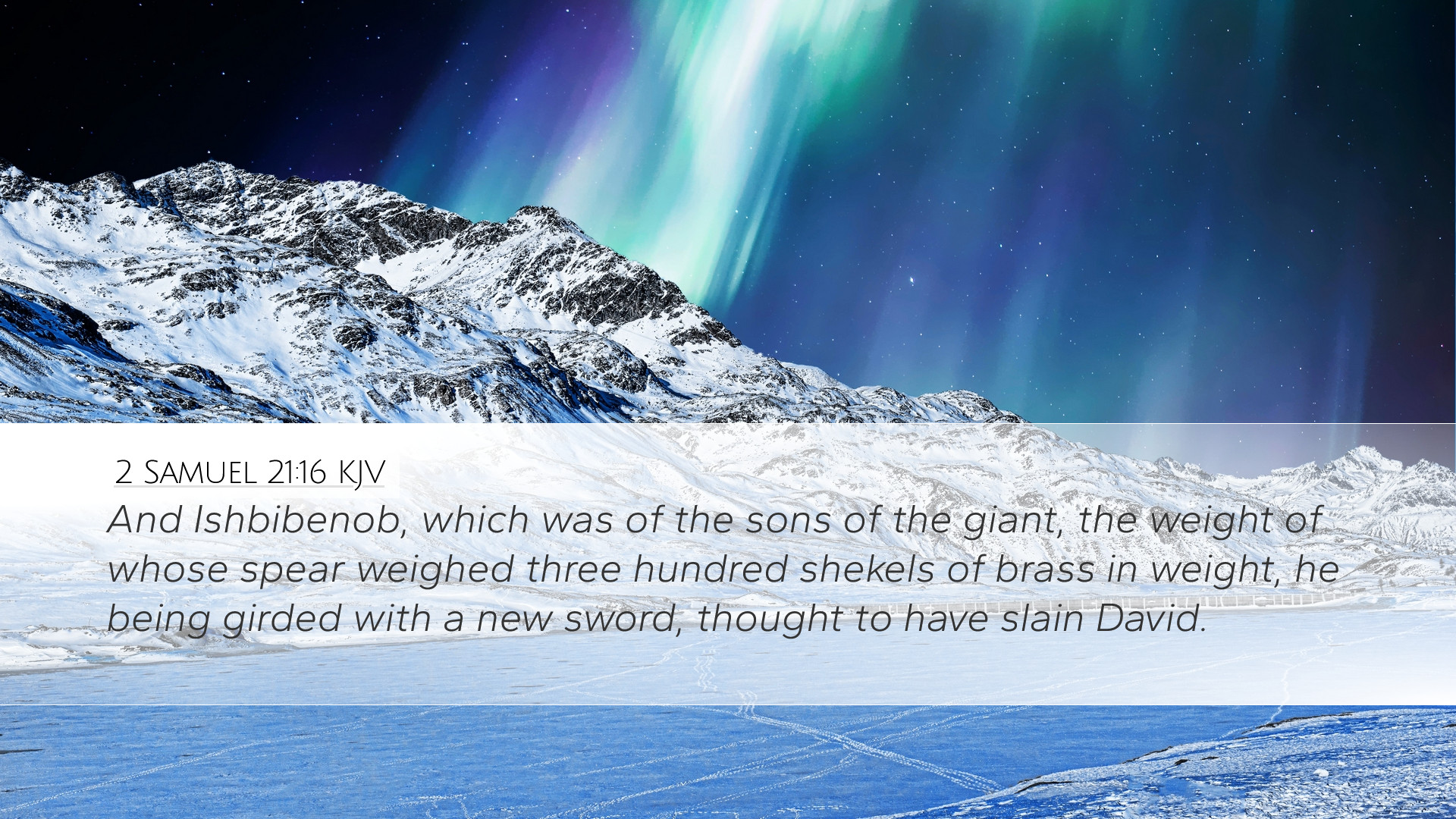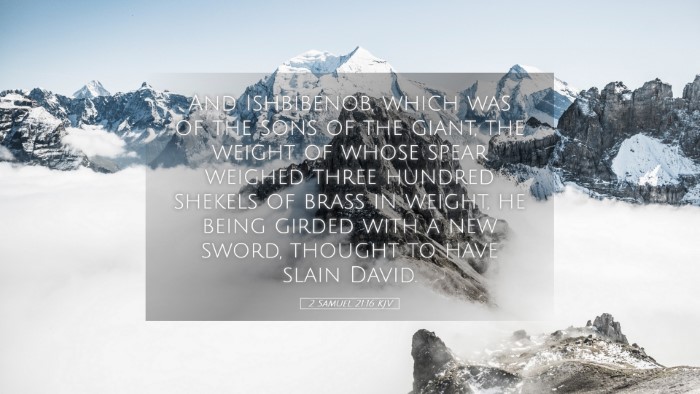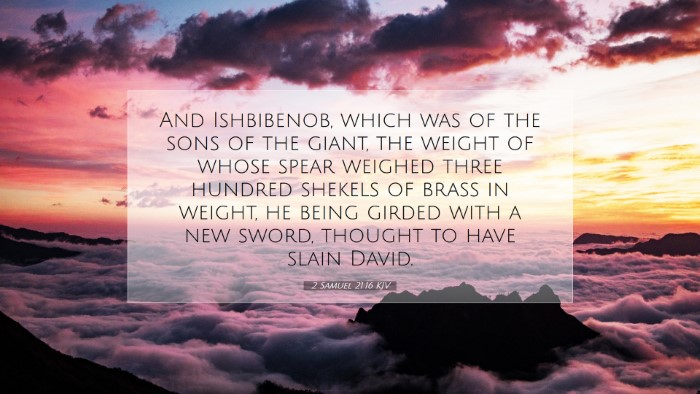Commentary on 2 Samuel 21:16
Verse Reference: 2 Samuel 21:16 - "And Ishbi-benob, which was of the sons of the giant, the weight of whose spear weighed three hundred shekels of brass in weight, he being girded with a new sword, thought to have slain David."
Introduction
The verse in question narrates a specific incident during the later years of King David’s reign, highlighting the ongoing confrontations with the remnants of the Philistine giants. This commentary will dissect the various elements present in this verse, drawing from insights provided by esteemed theologians such as Matthew Henry, Albert Barnes, and Adam Clarke. The focus will be on the implications of this encounter for understanding David's leadership, the broader narrative of warfare in Israel, and the typology of the giants.
Contextual Overview
The events in 2 Samuel 21 occur in a time of transition for Israel. David's reign is marked by both triumphs and trials, including implicit challenges to his kingship. This verse encapsulates a moment of peril when David faces a formidable opponent, Ishbi-benob, a descendant of the giants. The giants represent not just physical enemies but also spiritual and historical legacies that threaten David’s kingdom.
Character Analysis: Ishbi-benob
Ishbi-benob is identified as one of the sons of the giants, which situates him within a historical narrative that reflects the ongoing struggles between Israel and the Philistines:
- His Heritage: The term "sons of the giant" suggests his lineage as a formidable warrior, connecting with the legacy of Goliath.
- Physical Description: The reference to the weight of his spear at "three hundred shekels of brass" underscores his might, indicating he is equipped far beyond an average warrior.
- Weaponry: The new sword signifies preparedness and an eagerness to engage, suggesting a calculated intent to confront a weakened David.
The Significance of the Sword
As noted by Albert Barnes, the mention of Ishbi-benob being "girded with a new sword" can symbolize various theological and practical implications:
- Preparedness for Battle: A "new sword" indicates readiness for combat, reflecting both physical and spiritual preparations in the face of adversity.
- Intimidation: New weaponry in the context of battle can signify not just readiness but also an attempt to instill fear in the enemy, in this case, David.
David's Vulnerability
This verse brings to light David's vulnerability at this stage of his life:
- Age and Fatigue: David is older and possibly weary from continual warfare, highlighted by previous passages discussing his limitations.
- Symbol of Leadership: The attack on David can be seen as an attack on Israel itself, wherein the king’s well-being reflects the strength of the nation.
The Role of Divine Providence
Throughout the Bible, particularly in the Old Testament, the theme of divine protection is prevalent. Adam Clarke comments on God's providence during this encounter:
- God’s Preservation: Despite the clear threat Ishbi-benob poses, God's hand is evident, just as He had preserved David throughout previous trials.
- Symbol of Hope: This moment serves as a reminder of God's faithfulness amidst danger, encouraging the faithful to trust in providential care.
David’s Legacy of Mercy and Guts
The confrontation with Ishbi-benob highlights David's merit as a leader, marked not by sheer might but by mercy and great faith:
- Leadership Model: David's struggles inform future leaders about vulnerability, showing that true leadership involves reliance on God rather than personal strength.
- Legacy of Mercy: Later, David displays merciful judgments, signifying a leader's role in safeguarding his people not just from enemies but also from the consequences of their own sins.
Conclusion
2 Samuel 21:16 serves as a pivotal moment in the narrative of David's kingship, providing a profound reflection on the nature of conflict, divine protection, and the legacy of leadership. Drawing from the insights of Matthew Henry, Albert Barnes, and Adam Clarke, we find a rich tapestry of theological implications and practical applications relevant to leaders, scholars, and believers alike. Understanding this encounter deepens our comprehension of God's unwavering presence in moments of peril and highlights the complexity of David's role as both a warrior and a compassionate king.


